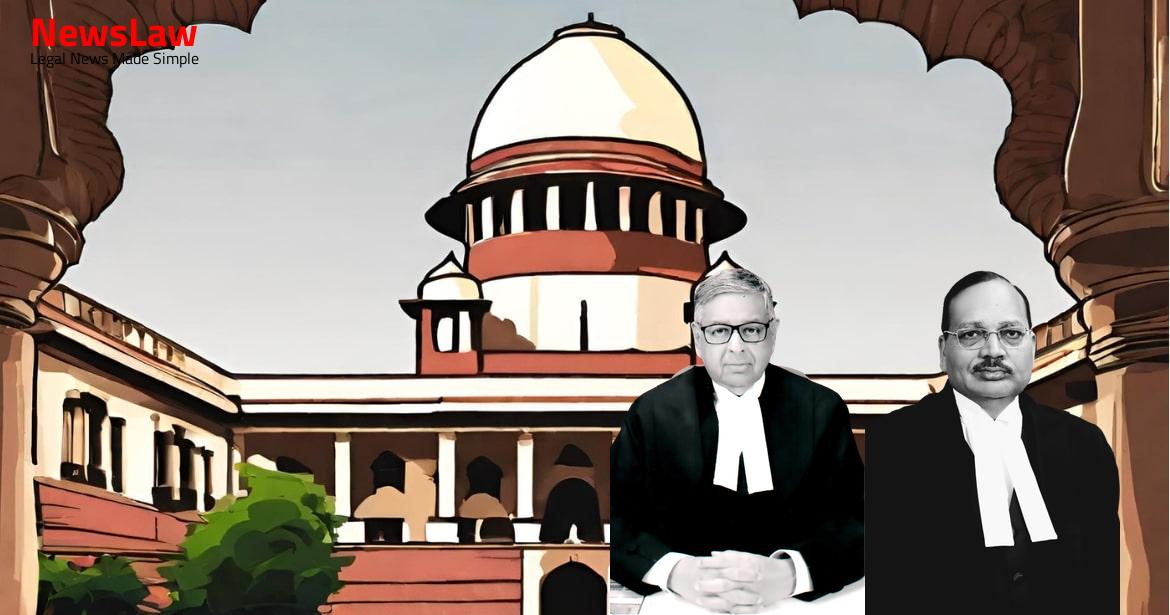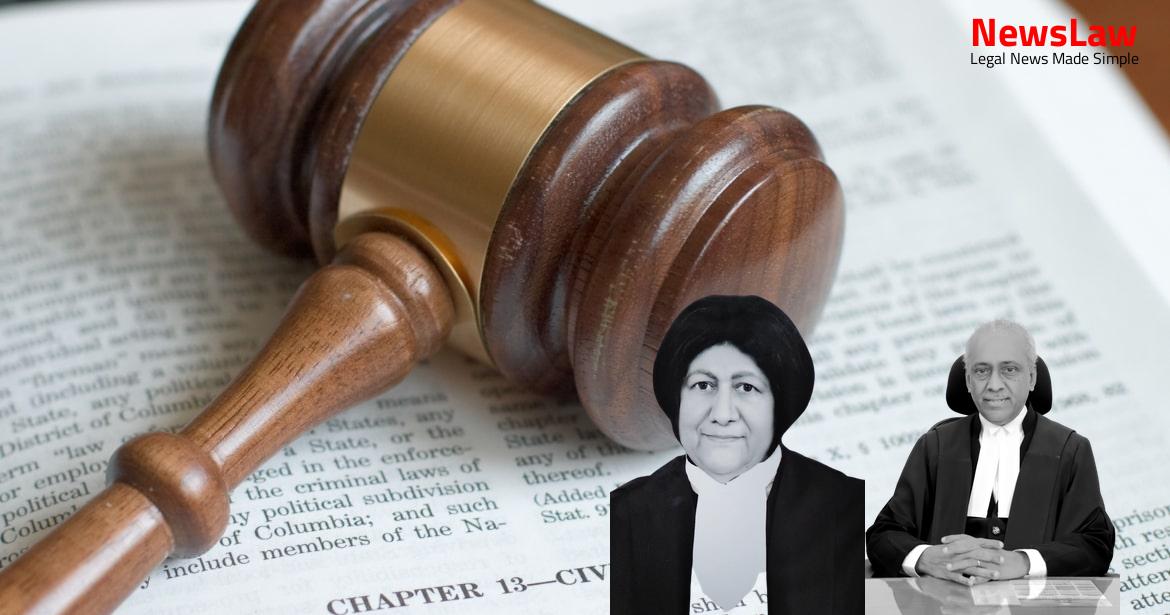Delve into the intricate legal analysis conducted by the court in a recent case regarding anticipatory bail in criminal cases. The court’s thorough evaluation of the provisions of Section 438 of the Cr.P.C. and its application in granting relief provides valuable insights for legal practitioners and individuals involved in similar situations. This blog explores the court’s considerations in balancing the rights of the accused, interests of the investigating agency, and concerns of the complainant to uphold justice and fairness in the legal process.
Facts
- Complainant registered FIR No. 371/20 at police station Thana Bhawan, Shamili under Sections 307, 504 and 34, IPC.
- Respondents sought protection from arrest under Section 438, Cr.P.C. during ongoing investigation.
- Complainant registered FIR No. 07/2021 at police station Masuri, Ghaziabad under Sections 304B and 498A, IPC against respondents nos. 2 to 5 due to suspicious death of a person.
- Complainants in both cases are in appeal against the grant of relief.
- Criminal Appeals by way of Special Leave raise common question of law.
- First case involves marriage of appellant’s daughter to respondent no. 2 on 14.02.2014.
- Second case involves an attack on appellant’s brother and his two sons by the respondents due to a land dispute.
- Appellant’s brother’s sons were attacked on vital parts, with one suffering a skull fracture leading to a coma for a week.
- The High Court of Judicature at Allahabad dismissed the anticipatory bail application of the respondents-accused.
- The High Court granted the respondents-accused 90 days to surrender before the Trial Court to seek regular bail.
- Protection from coercive action was provided to the respondents-accused for the 90-day period.
- The orders dated 08.02.2021 and 28.01.2021 had identical relief granted to the respondents-accused.
Also Read: Electoral Malpractices in Mayor Election
Arguments
- The learned counsel for the appellants and the State counsel argued that since the High Court had denied pre-arrest relief to the respondents, they should not be granted any further protection
- The police have been unable to conduct custodial interrogation of the accused due to the High Court’s orders, which has hampered the ongoing investigation
- The nature of the offences in both cases is described as grave and heinous, further justifying the need for custodial interrogation
- The learned counsel for the respondents justified the discretion of the High Court.
- It was argued that the High Court has the power to pass orders in the interest of justice.
Also Read: Balancing Power and Transparency: Electoral Bonds Struck Down, Disclosure Mandated
Analysis
- The High Court, after rejecting the anticipatory bail applications of the respondents-accused, granted further relief based on the gravity of the accusations.
- The power to grant anticipatory bail directly impacts the fundamental right to life and liberty.
- The focus of Section 438, Cr.P.C., is on the grant of anticipatory bail with normal conditions under Section 437(3) read with Section 438(2).
- The High Court’s order in the present appeals did not meet the standards set for protecting the interests of the applicant while considering the concerns of the investigating authority.
- The Court may pass protective orders even after dismissing an anticipatory bail application, but must provide a reasoned judgment for doing so.
- The Court can utilize its inherent power under Section 482, Cr.P.C., to secure the ends of justice.
- The order granting protection post-dismissal of the anticipatory bail application went beyond the High Court’s jurisdiction under Section 438, Cr.P.C.
- In special circumstances, a Court may grant anticipatory bail for a limited period.
- The proviso to Section 438(1) does not create rights or restrictions but allows for the arrest of the accused upon rejection of relief.
- The Court should balance the concerns of the investigating agency, complainant, and society at large while considering anticipatory bail applications.
- Section 438(3) dictates the consequences of the grant of relief under the Section.
- The proviso to Section 438(1) states that if an application is rejected, the police can arrest the applicant.
- Section 438 allows for a person to apply for anticipatory bail in case of a non-bailable offense.
- The Court may reject the application or issue an interim order for anticipatory bail.
- If a person is arrested without warrant after applying for anticipatory bail and is prepared to give bail, they shall be released on bail.
- Section 438 does not provide protection after the dismissal of the application.
- Section 438 is concerned with the personal liberty of the individual presumed innocent until convicted.
- The life of an anticipatory bail order can continue until the end of the trial.
- The High Court has the discretion to grant relief under Section 438 based on established considerations.
- Courts have the power to grant anticipatory bail without a fixed period, as clarified in recent judgments.
- Any ambiguity in the language of the provision should be resolved in favor of the applicant seeking relief.
- Courts can impose special conditions or limitations on anticipatory bail if circumstances warrant.
- High Court’s error in passing protection to the respondents-accused after dismissal of anticipatory bail application.
- Granting relief for 90 days without considering concerns of investigating agency or complainant.
- Exceeding judicial discretion and showing judicial largesse by the High Court.
- Impugned orders do not withstand legal scrutiny.
- Resultant effect: respondents not entitled to pre-arrest bail, but also cannot be arrested for a long duration.
Also Read: Recall of Resolution Plan Approval: Legal Analysis
Decision
- The present appeals have been allowed.
- If the respondents-accused have been sent to judicial custody, their bail applications or requests for police remand should be decided by the competent Court independently.
- The orders granting protection for 90 days to the respondents-accused in the anticipatory bail applications are set aside.
- The Investigating Agency is directed to proceed with the matters as per the law and complete the investigation.
Case Title: NATHU SINGH Vs. THE STATE OF UTTAR PRADESH (2021 INSC 300)
Case Number: Crl.A. No.-000522-000522 / 2021



